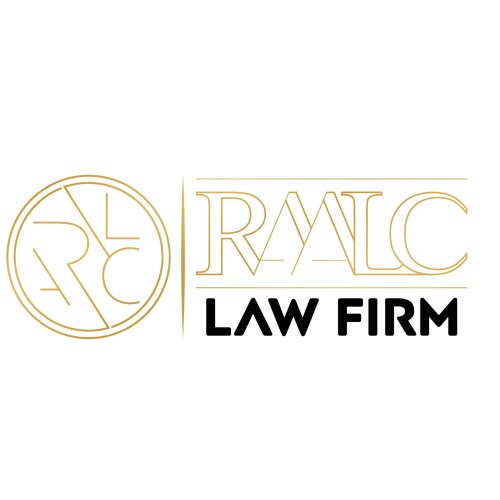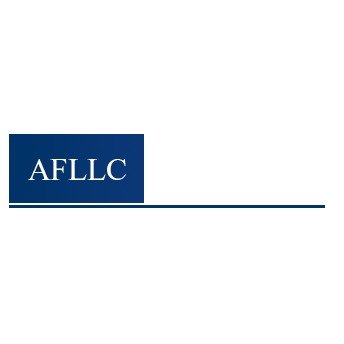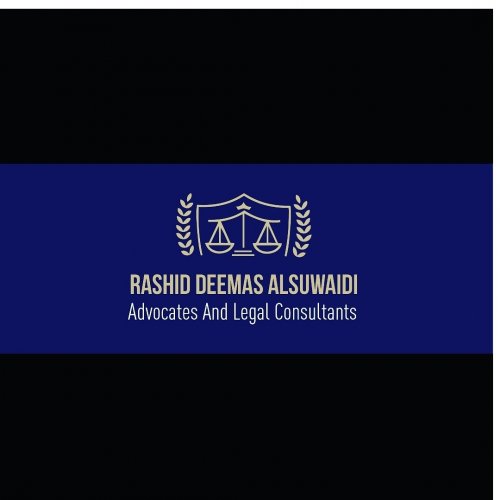Best Conveyancing Lawyers in Sharjah
Share your needs with us, get contacted by law firms.
Free. Takes 2 min.
Free Guide to Hiring a Real Estate Lawyer
List of the best lawyers in Sharjah, United Arab Emirates
About Conveyancing Law in Sharjah, United Arab Emirates
Conveyancing in Sharjah, United Arab Emirates refers to the legal process of transferring property ownership from one person or entity to another. This process includes preparing and checking contracts, ensuring compliance with all regulatory requirements, conducting due diligence, handling payments, and completing registration with relevant authorities. Sharjah’s property market is governed by a mix of federal UAE laws and local emirate regulations, making the conveyancing process quite specific compared to other jurisdictions. In Sharjah, certain property sectors are open for freehold or leasehold ownership by UAE nationals and, in some areas, by GCC citizens or foreign nationals, subject to the latest local regulations.
Why You May Need a Lawyer
There are several situations where the assistance of a lawyer can be crucial in conveyancing transactions in Sharjah. These include:
- Reviewing or preparing property sale or purchase agreements
- Explaining complex legal terms and obligations
- Ensuring title is clear and free from encumbrances such as mortgages or liens
- Assisting with property transactions for non-residents or corporate entities
- Advising on inheritance, gifting, or transfer of property within families
- Representing clients in disputes about boundaries, defects, or breaches of contract
- Attending to registration requirements with the Sharjah Real Estate Registration Department
- Managing power of attorney procedures if the buyer or seller is abroad
A qualified lawyer with experience in conveyancing ensures the transaction is legally sound, protects your interests, and helps prevent future legal issues.
Local Laws Overview
Sharjah’s conveyancing procedures are influenced by UAE federal laws, such as Federal Law No 5 of 1985 (UAE Civil Code), as well as Sharjah-specific legislation and executive decisions. Some key points include:
- Property ownership is regulated by local laws, which generally reserve freehold ownership for UAE nationals, with certain areas designated for leasehold by GCC nationals and foreigners
- All property transactions must be registered with the Sharjah Real Estate Registration Directorate (SRERD)
- Both buyers and sellers must be present at the time of transfer or provide a notarized power of attorney
- Payments are typically made by manager’s cheque, and transfer fees are paid to the SRERD
- New developments or off-plan properties have additional regulations concerning deposits, escrow, and developer approvals
- Foreign nationals must comply with residency, investment, and ownership restrictions
Legal advice is strongly recommended to navigate these regulations, as they frequently change and can involve significant financial commitments.
Frequently Asked Questions
What is conveyancing in Sharjah?
Conveyancing in Sharjah is the legal process of transferring ownership of real estate from one party to another, including verifying ownership, preparing documents, and registering the property with authorities.
Who can buy property in Sharjah?
Primarily UAE nationals, with some areas open to GCC nationals and, on a leasehold basis, to foreign nationals due to recent regulatory updates. The regulations are subject to change and should be checked carefully before any transaction.
Do I need a lawyer for property transfer in Sharjah?
While not always mandatory, it is highly recommended to work with a lawyer to ensure the process is legally compliant and to safeguard your interests, especially in more complex transactions.
How is property registered in Sharjah?
Property registration is carried out at the Sharjah Real Estate Registration Directorate, where buyers and sellers submit required documents, finalize payment of fees, and complete the official ownership transfer.
Are there taxes on property transactions in Sharjah?
There are typically no property taxes, but a transfer fee (often expressed as a percentage of the property value) is payable to the SRERD. Additional administrative fees may also apply.
Can foreigners inherit property in Sharjah?
Inheritance for non-citizens is subject to Sharjah and federal UAE inheritance laws, which can be complex. Legal consultation is essential for expatriate estate planning or inheritance scenarios.
What documents are needed for property transfer?
Common requirements include passports and Emirates ID copies of both parties, title deed, sales agreement, proof of payment, and sometimes, a no-objection certificate from the developer or landlord. Additional documents may be needed in specific cases.
What happens if there is a dispute after property transfer?
Disputes can be addressed through negotiation, mediation, or litigation in UAE courts. Having a lawyer involved from the outset can help prevent disputes or represent your interests if they arise.
How long does the conveyancing process take in Sharjah?
The timeline varies by transaction complexity but usually ranges from a few days to several weeks, depending on documentation, payment, and regulatory approvals.
Can I buy property in Sharjah if I reside overseas?
Yes, but you will often need to appoint a local legal representative through a power of attorney, and you must comply with ownership restrictions applicable to non-residents.
Additional Resources
- Sharjah Real Estate Registration Directorate (SRERD) - The main government authority for property registration and related queries
- Sharjah Municipality - For zoning, utility connection, and land-use questions
- Law firms specializing in UAE conveyancing - Many local firms have dedicated real estate departments experienced in Sharjah property law
- Legal clinics provided by the Sharjah Department of Legal Affairs - Offer initial legal guidance for residents
- Sharjah Chamber of Commerce and Industry - Useful for commercial property investors and business-related real estate queries
Next Steps
If you are considering buying, selling, gifting, or inheriting property in Sharjah, the following steps can help you proceed safely:
- Gather all available documents related to the property and your identity
- Consult a qualified lawyer experienced in Sharjah conveyancing law for personalized advice
- Verify the ownership status and any encumbrances with the SRERD before signing agreements
- Ensure that all paperwork, fees, and procedures comply with current local regulations
- Consider engaging a lawyer to represent or accompany you through the registration and payment process
- Retain copies of all contractual documents and official receipts for your records
Early legal advice can save time, money, and reduce the risk of costly mistakes or future disputes. Starting with informed and professional guidance is the best way to protect your interests when dealing with conveyancing in Sharjah, United Arab Emirates.
Lawzana helps you find the best lawyers and law firms in Sharjah through a curated and pre-screened list of qualified legal professionals. Our platform offers rankings and detailed profiles of attorneys and law firms, allowing you to compare based on practice areas, including Conveyancing, experience, and client feedback.
Each profile includes a description of the firm's areas of practice, client reviews, team members and partners, year of establishment, spoken languages, office locations, contact information, social media presence, and any published articles or resources. Most firms on our platform speak English and are experienced in both local and international legal matters.
Get a quote from top-rated law firms in Sharjah, United Arab Emirates — quickly, securely, and without unnecessary hassle.
Disclaimer:
The information provided on this page is for general informational purposes only and does not constitute legal advice. While we strive to ensure the accuracy and relevance of the content, legal information may change over time, and interpretations of the law can vary. You should always consult with a qualified legal professional for advice specific to your situation.
We disclaim all liability for actions taken or not taken based on the content of this page. If you believe any information is incorrect or outdated, please contact us, and we will review and update it where appropriate.













